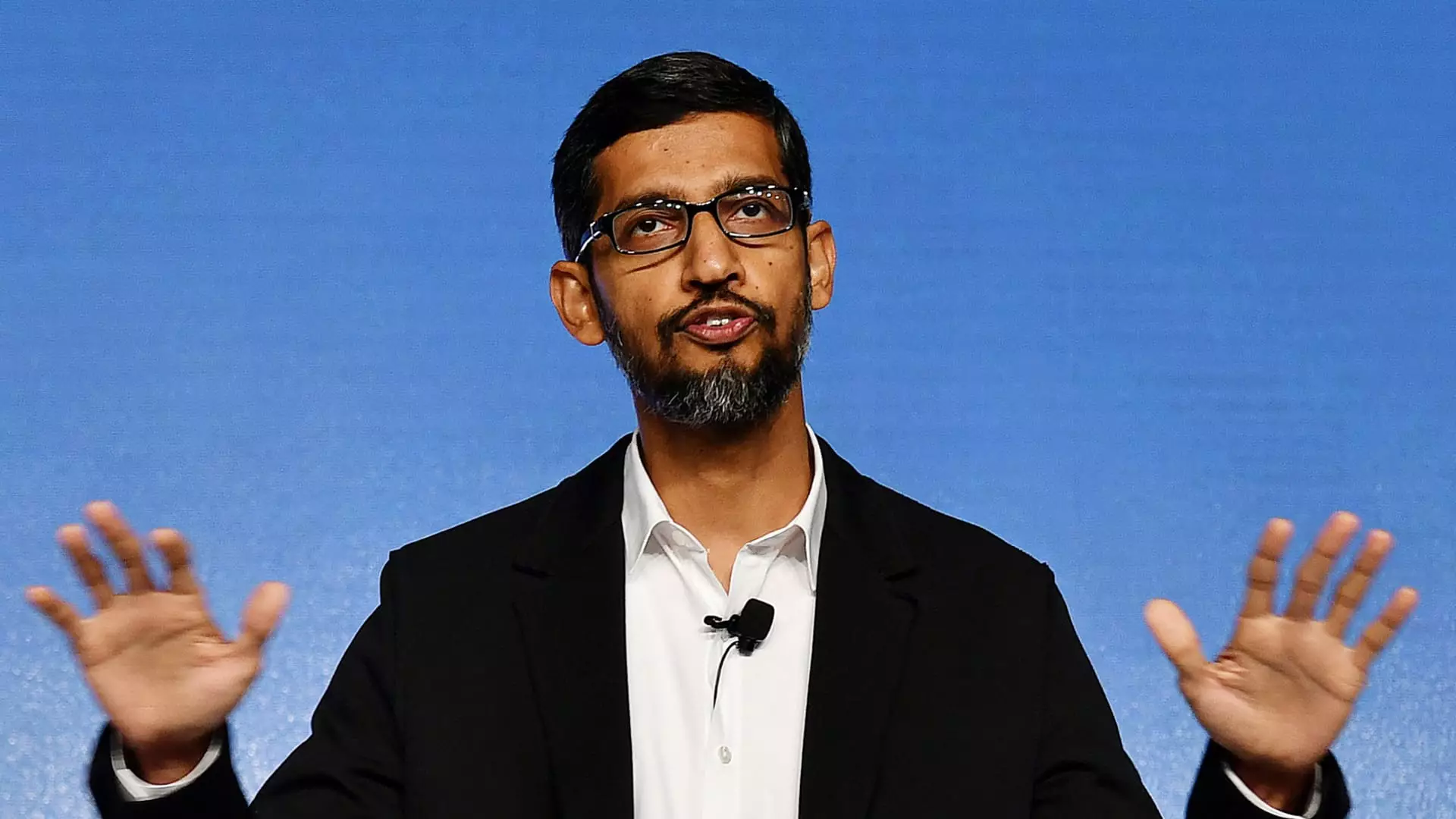As political tensions rise ahead of critical elections in the U.S., tech giants like Google grapple with maintaining an environment where employees are encouraged to share ideas without crossing into the realm of partisanship. In a recent revelation, it was disclosed that Google has actively moderated and deleted political content being discussed among its employees on the internal platform Memegen—a decision that reflects a broader trend in corporate America to restrict political dialogues in the workplace.
In the lead-up to elections, Google executives alerted employees to remain neutral in their political expressions on Memegen, a platform that traditionally fosters creativity through meme-sharing. Despite these advisories from management, many employees openly critiqued the company’s policies, indicating a disconnect between leadership’s directives and the employees’ desire to voice their opinions. The resultant friction raises questions about freedom of expression within large organizations, especially when political landscapes are at stake.
CEO Sundar Pichai weighted in with a memo that underlined the company’s commitment to providing accurate and trustworthy information across all its platforms, asserting that Google should remain a nonpartisan entity. Pichai’s statement emphasized the importance of Google’s role as a source of information regardless of personal beliefs, suggesting that the company should set aside individual political opinions for the greater good of its user base. Such pronouncements reveal a cultural pivot within Google, wherein maintaining a veneer of neutrality is prioritized over the individual rights of employees to express their political views.
Google’s stringent internal content moderation policy is not new. Implemented in 2019, it aimed to curtail expressions deemed as “insulting” or “demeaning.” However, the broad nature of these policies has incited backlash among employees who feel that their right to engage in political discourse is stifled. In essence, the contentious nature of politics has permeated the corporate culture, complicating how employees feel they can navigate their roles in a politically charged environment.
This tension was exemplified when employees publicly criticized the restrictions, deeming them excessively vague. The response from management has evolved over the years, culminating in an expanded approach to moderation that requires active employee oversight of the internal discourse. Here lies an inherent conflict: encouraging participation while simultaneously enforcing boundaries that limit meaningful engagement.
The peculiar case of Project Nimbus illustrates how employee candidness can be tested when corporate interests intertwine with global political issues. This project, a significant contract with the Israeli government, has drawn scrutiny and dissent from within Google. The social ramifications of such business decisions make it increasingly challenging for Google to foster a workplace environment that is both open to dialogue and aligned with its corporate ethos.
Adding another layer to this discussion are governmental pressures. Recent mandates from the U.S. National Labor Board obligate Google to uphold employee rights to discuss workplace conditions, a directive that juxtaposes the company’s attempts to silence political chatter. This conflict highlights the often murky waters organizations must navigate when attempting to maintain a cordial and professional atmosphere amidst diverse political landscapes.
The implications of Google’s stringent moderation policies can significantly impact workplace morale. With the specter of content removal looming over employees, the potential for self-censorship grows, leading to a chilling effect on open dialogue around meaningful topics, including social justice and corporate ethical responsibilities. Consequently, a culture of fear may prevail, stifling an inclusive environment where varied perspectives are welcomed.
Recent updates to Memegen guidelines illustrate a firm stance against political discussions, with the platform enforcing bans on any posts relating to national policy or international affairs deemed irrelevant to Google’s operations. This clearly delineated boundary encourages employees to tread lightly, fundamentally changing how they interact within the company’s digital corridors.
As companies like Google continue to grapple with the intersection of employee expression and corporate policies, it becomes crucial to strike a balance that respects both individual rights and the organizational mission. While it is understandable for a tech giant to seek to maintain neutrality, the approach of curbing political discussions may inadvertently rob employees of vital opportunities for engagement and discourse. Effective communication and the creation of a safe space for diverse ideas may be one way forward in an increasingly politically charged society. A re-evaluation of policies that respect free speech while promoting professionalism could foster a more harmonious and productive workplace at Google and beyond.

